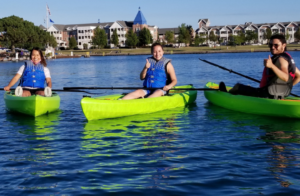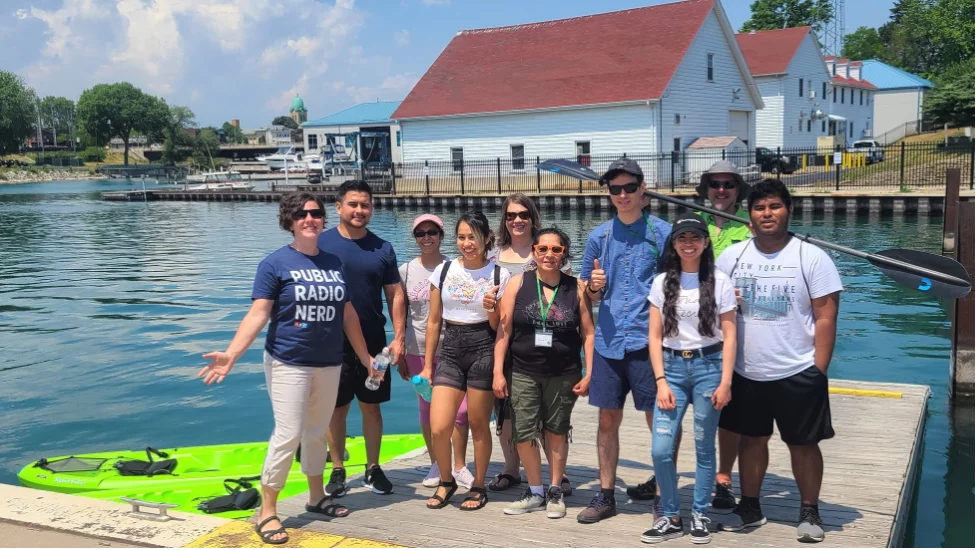By teaching adults basic reading, writing, math, and English language skills, we give them the ability to become active and engaged members of their communities.
In Kenosha, Wisconsin, the Kenosha Literacy Council is taking instruction one step further to set its students up for success beyond the classroom. The program takes students into the community to learn firsthand how to access necessary daily resources. It also takes time to introduce students to resources that enrich their lives. All the while, students are practicing the skills they learned in class out in the real world.
Kenosha Literacy Council Executive Director Cheryl Hernandez and Program Coordinator Cassie Christianson shared with us some basics of what experiential learning is and why they have incorporated it into their program.
ProLiteracy: What is experiential learning and why is it important?
Kenosha Literacy Council: Experiential learning is a learning process that actively engages students because they learn by doing and then reflecting on the experience.
 Research shows us that experiential learning is important because it makes learning relatable, increases the effectiveness of learning, links theory to practice, assists in memory retention, and increases students’ engagement.
Research shows us that experiential learning is important because it makes learning relatable, increases the effectiveness of learning, links theory to practice, assists in memory retention, and increases students’ engagement.
ProLiteracy: The description of your workshop states, “Connect your learners to their community by accessing essential and enriching resources to achieve community literacy.” Can you give examples of essential and enriching resources?
Kenosha Literacy Council: Essential resources, such as hospitals, banks, and schools, are important for learners because they are necessary for everyday life. But the enriching resources, such as parks and museums, are equally important because accessing these resources is what helps learners become a part of our community.
ProLiteracy: Can you share a memorable or successful example of when you’ve framed a lesson around a resource in the community? Why was it a success?
Kenosha Literacy Council: We arranged an experience for students to go kayaking. Through this experience, they learned a new skill and how to utilize a new resource in the community all while practicing English conversation. We consider it a success because learners have utilized the resource independently for trips with family and friends since the initial experience. Without our introduction to the resource, the learners would have likely never discovered this enriching experience.
 ProLiteracy: What do you mean by “community literacy”?
ProLiteracy: What do you mean by “community literacy”?
Kenosha Literacy Council: For us at the Kenosha Literacy Council, we take community literacy to mean one has the ability to be engaged in the community—being able to access everyday services and to participate in community activities.
ProLiteracy: Why is it important for adult learners to gain community literacy?
Kenosha Literacy Council: Learners who achieve community literacy are more likely to become leaders within their family and the community. They acquire life skills that relate directly to their needs as community members and, in return, help the community as a whole grow stronger.
Hernandez and Christianson will present a workshop titled “Your Community is the Ultimate Classroom” in October at the ProLiteracy Conference on Adult Education in Baltimore, MD. They will walk participants through how to plan and implement experiential learning models.
Learn more about the workshop Hernandez and Christianson will be presenting at the ProLiteracy Conference on Adult Education and register to attend on our website.
